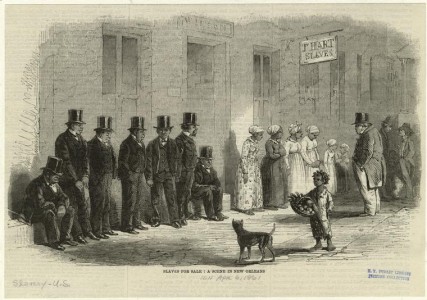
People want to be seen as good. That’s one of the driving desires to be a part of society — to be seen as a good person and holding the public interest as a priority.
I learned this lesson from reading a fascinating read, “The Righteous Mind“ by Jonathan Haidt. Once I took that lesson to heart, I began to understand statements that once seemed ridiculous in a different light. Whether I agreed or not, I understood billionaires arguments that taxes are bad as a belief that they do good in the world by creating jobs for people and that taxes would diminish their capacity to do good. I understood deregulation arguments as a belief that regulation is holding back innovation and jobs and progress.
I say this because the latest conservative hero, Cliven Bundy, had some choice words. His fight to not pay federal land use fees has garnered significant support, including that of Spokane Valley state representative Matt Shea. In talking about – again, his words – the “Negro,” he stated:
“They abort their young children, they put their young men in jail, because they never learned how to pick cotton. And I’ve often wondered, are they better off as slaves, picking cotton and having a family life and doing things, or are they better off under government subsidy? They didn’t get no more freedom. They got less freedom.”
There’s so much factually wrong about this statement; There’s so much that’s emotionally inciteful and racist that’s it’s hard to step back and realize that he actually thinks he’s talking about public interest and what’s good for people. Working backwards, he believes that black Americans don’t have freedom and opportunity in today’s system.
The thing is, that starting place is probably true. Black Americans experience significantly higher unemployment rates, the income and wealth gap between black and white households is getting worse ever since the recession, and new studies continually show bias.
The problem, then, is the factual inaccuracies perpetrated by a whitewashed (literally) history of slavery. Ta-Nehisi Coates has been producing some remarkable posts about inequality in America today, and one of his central points regarding the oft-assumed problem with absent black fathers is that this is a problem borne out of slavery. White slave owners would specifically separate families. The way to prevent rebellion was the be so feared and so disjointed that nothing could organize itself. Likewise, a criminal justice system that targets black folks for prosecution despite no evidence for disproportionate crime rates is the reason for our unjust legal system, not some vagary suggesting the black community puts its own men in jail.
So if he understands the existing disparities today, how do we reconcile in understanding how they came about? I’m not sure. But I do know that we like to live in bubbles, surrounded by people that think like us. Not only that, but when we believe something to be true, we’re actually incapable of internalizing information supporting the other side. If we’re to reconcile, it requires being humble enough to admit we’re not always right, and to build relationships with people that will challenge and expand our understanding of history.










I heartily concur. My main area of study back in my BA History days at EWU involved the Antebellum/Civil War/Reconstruction era, and the historiography showed the remarkably degree of historical amnesia in the public perception of the era as opposed to what historians were uncovering.
There is a conservative subculture that wants to sugarcoat slavery, such as Steve Wilkins & Douglas Wilson’s 1996 pamplhet, “Southern Slavery, As It Was,” which should still be available online (I snatched my copy from southernslavery.blogspot.com). Wilson debated the late Christopher Hitchens some years back on religion and morality issues. Unfortunately Hitchens didn’t investigate the background of his debating foils so neglected to uncover Wilson’s revisionist gloss on Southern slavery, where an examination of Wilkins & Wilson’s cited sources would have revealed disconcertingly bad scholarship.
Anyone who can read through the records of an American slave’s life without getting creepy tingles down the spine has to have their moral compass examined. One can include people who imagine that the Good Old Days prior to the Income Tax and minimum wage laws were a utopia of happiness all around.
The Polyanna mindset spills over into other areas. Dinesh D’Sousa (a far brighter chap than Mr. Bundy) in “What’s So Great About Christianity” tried a similar revisionism trick on the Spanish Inquisition, claiming it hadn’t killed as many people as some had thought and didn’t target Jews. Unfortunately, D’Sousa’s sole source, Henry Kamen’s 1997 “The Spanish Inquisition: A Historical Revision” from Yale University Press tellingly argued exactly the opposite on the Jewish targeting issue, and showed that the primary reason why fewer people had died than some estimates had thought owed less to good intentions than to bald inefficiency: thousands of Jews were targeted for trial but by the time the Inquisitors showed up the intended victims had often prudently skipped town.
It can be argued that people who can conjure up their own imaginary history can be just as liable to idiosyncratic (and occasionally dangerous) ideas about the law and social policy. History, as someone once said, doesn’t repeat itself, but it does on occasion rhyme. It is the duty of the sound historian to keep the harmonies here as concordant as possible.
Thanks for the thoughtful comments, Jim.